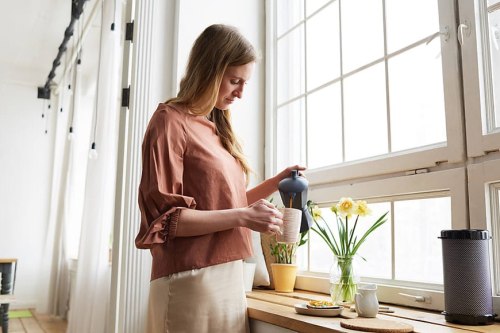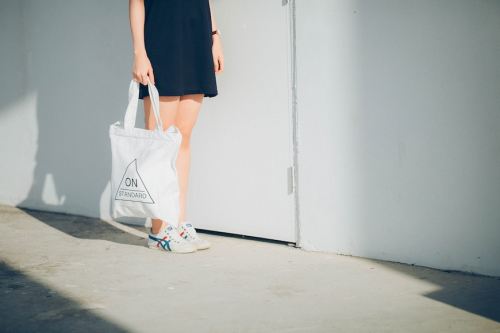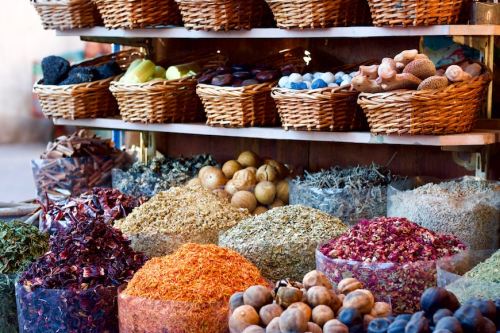Our editors independently select these products. Making a purchase through our links may earn Well+Good a commission
How hard is going zero waste? I tried it for a week to find out
One writer puts herself to the test and aims to make zero garbage and lead a Zero Waste lifestyle.

I am a chronic plastic user, who can’t ditch my everyday plastic consumption, no matter how many scary statistics I read. You know the ones I’m talking about: The Great Pacific Garbage Patch is rapidly accumulating plastic, it takes the material about a century to decompose when it winds up in a landfill, and even sea salt from around the world has been contaminated with the stuff.
You’d think that since Americans represent only 5 percent of the world population, but generate 30 percent of its garbage, I would be sufficiently shamed. Undoubtedly, this makes me feel guilty, but until recently it wasn’t enough to make me go cold turkey on plastic. A zero-waste lifestyle basically aims to send no waste to the landfill, which means forgoing things like paper towels, packaging materials, takeout containers, straws, and composting food scraps.
While the process seems overwhelming (where in the world do you start, and for heaven’s sake do you really need a worm composter for your kitchen), I finally decided to pull out the tote bags and try going zero waste for a week. Here’s what happened.

Foraging for food
The first day was daunting and intimidating. I spoke with an expert, Meagen Weldon, founder of Zero Waste Nerd, who cautioned me to start small. “The thought of embarking on the zero-waste journey can be a little overwhelming at first,” she advised. “Sometimes it looks as if in order to be prepared you basically need a suitcase of things with you at all times, but that isn’t true. All of the items I use on a daily basis fit into my purse.”
I quickly busted out mesh produce and bulk bags, colorful metal straws, a S’well water bottle, and a brand new chrome portable coffee cup. I felt vindicated with my metal straw at the smoothie shop, but that night, sushi dinner came in disposable plastic, with soy sauce packages. I felt helpless and hungry, and wondered if I’d ever be able to eat out again.
“I really believe that eating out is voting, just as buying is voting,” says Bea Johnson, author of Zero Waste Home: The Ultimate Guide to Simplifying Your Life By Reducing Your Waste, and a leader of the zero waste movement. “Every time you buy something you have the power to support a practice that is sustainable.” I vowed to research and be more selective of which restaurants to give my money. Also, why, I thought, not sit at a restaurant and eat on real plates with real silverware? It seems zero waste also supports slowing down, and everyone needs a little more of that.

Changing my shopping habits
A few days in, I was hyper aware of how much packaging (office supplies, beauty ointments, household items) I was encountering each day. Johnson’s methodology: “refuse, reduce, reuse, recycle, and then rot—in that order” emphasizes that it’s not enough to just recycle. “The first thing someone can do is refuse and this is simply learning how to say no,” Johnson says. “Today, in this consumerist society, we are the target for many promotional goods, and every time we accept them we’re creating not only a demand to make more, but also adding to the clutter and then to our trash.”
Beyond how I was throwing away my garbage, I was confronted with my shopping habits. I needed to look carefully at my real needs and start refusing unnecessary consumer goods whether free or paid for. “When I enter the supermarket, my eyes don’t see the packaged [goods] anymore, they only see what’s available to me unpackaged,” Johnson says. “And once you have that vision, you’ll see that unpackaged goods are everywhere.”
Soon, I noticed the bulk bins hiding in my health food store, a machine for refilling my nut butters, and an area for refilling soaps and detergents. At my normal grocery store I bought a bar of unpackaged soap. I found butcher shops, cheese shops, fish stores and bakeries, all selling unwrapped goods. Package Free Shop in Williamsburg, the brainchild of Well+Good TALKS panelist Lauren Singer, is a concept store where everything from sage sticks to refillable dental floss are sold unpackaged.
Going zero waste presented some challenges that I was unprepared for. Yet, the thing that I thought would be hardest—composting—ended up being the simplest. Grow NYC actually collects compost twice a week at local greenmarkets, so I kept my scraps in a bag in my freezer until compost day. No smells, no worms, no mess.
In the end, my zero waste week was completely worth it, and for unexpected reasons. I became acutely aware of everything I was buying. Plastic never goes away, yet most plastic consumption is single use. That can’t ever be worth it. The age of convenience is destroying the planet, but also weighing us down with stuff.
“Ultimately the best thing about zero waste is discovering a life that is richer, based on the verb being rather than the verb having,” Johnson says. I can’t say that I was successful the whole week, but it brought a new awareness to my life that’s changed it moving forward. “Once you take off the blinders,” Johnson says, “you just can’t go back.”
Here are 8 reusable grocery bags that will keep you from needing paper or plastic at the grocery store and speaking of bags, this one is like the Swiss Army knife of bags.
Sign Up for Our Daily Newsletter
Get all the latest in wellness, trends, food, fitness, beauty, and more delivered right to your inbox.
Got it, you've been added to our email list.








